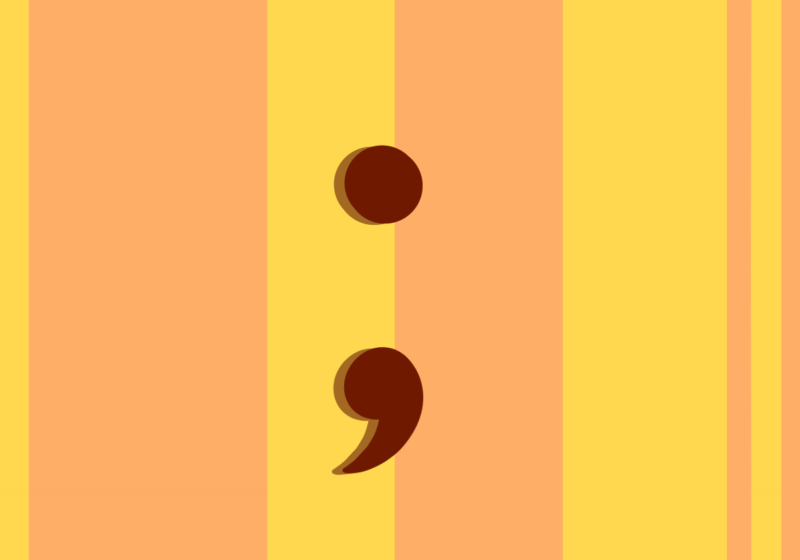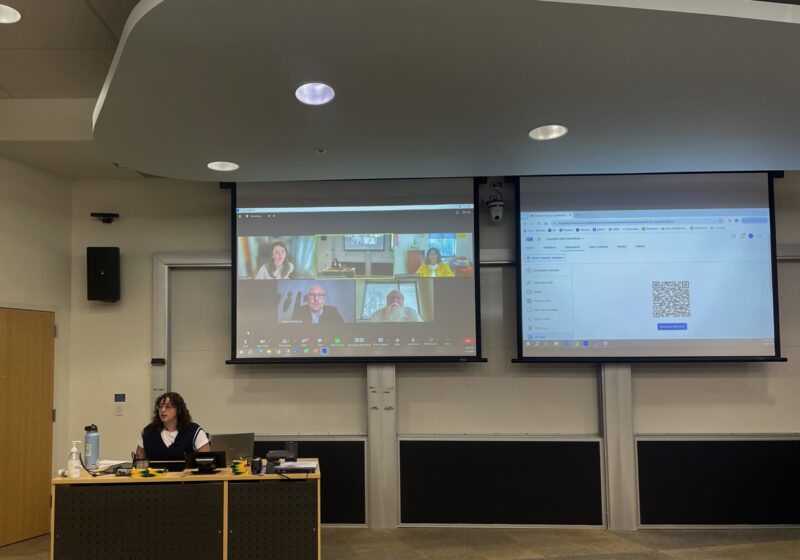My formal English education admittedly has not been great. I know how to write and speak, but my pronunciation leaves something to be desired.
When I moved to New York City in third grade, my new elementary school prioritized building a wigwam in my classroom over grammar lessons. In middle school my curriculum was so focused on the standardized English Language Arts test’s essay format thatI didn’t have time to second guess if I knew what an adjective was.
I knew how to write an essay, enjoyed a good ELA debate, and understood creative writing. But I didn’t know much about grammar.
High school made up for some of these discrepancies. My ninth grade english teacher made sure I knew my punctuation through weekly quizzes. This gave me a better understanding of grammar (I knew it at least existed).
Tenth grade put these ideas on the back burner. I learned how to make a sentence flow better, but there was no punctuation in my writing except a period or a comma, and maybe the occasional quote. Sure, I was using more SAT words and getting more descriptive, but I did not know how to land a blow with a hyphen.
It wasn’t until eleventh grade that I found my true love: the semicolon.
In AP English Language and Composition, there is a focus on text analysis. We would read “Hamlet” and “The Bluest Eye,” but also modern books like “Americanah” and “The Things They Carried.” The analyses of these books went deep; we focused on use of punctuation.
Why did the author break up those lines? How did that connect to the tone? They could have used a comma, but they chose not to — why?
Our writing assignments let us absorb style choices and apply them to our own writing. My essays became more experimental; the debates in class became more exciting. Some days the classroom turned into a warzone, and the notion of raising your hand was forgotten as voices clashed over why a paragraph was broken up instead of being a fluid thought.
“The Things They Carried” by Tim O’Brien enlightened me to the complexity of the semicolon. It showed me what makes a semicolon so damn sexy. There’s a chapter in the book that I find one of the most thought-provoking pieces of writing I have ever read, “How to Tell a True War Story.” O’Brien compares fiction to non-fiction and how the war genre shifts between them. He does this through, you guessed it, the semicolon.
O’Brien writes, “War makes you a man; war makes you dead.”
Do you see it? Do you see why this sentence is exciting and beautiful — why you could write a 10 page paper off these words alone? The semicolon is meant to connect ideas. These phrases contradict each other, but they somehow share a similar enough ideology to be connected by the semicolon. Phrases like that are what hooked me, and why I started to become more playful in my writing.
I entered high school blind to the idea of grammar, but I left as a person who couldn’t stop talking about it. When I write today, I have to force myself to limit my use of semicolons.
It wasn’t until this year that I realized how large the gap was in my English education. It took one semester of WRT 105, a reading of the Campus Times style guide, and a presentation on editing, to show me I missed out on some key education.
It’s good when we are challenged out of our hidey-holes. We all have them. STEM majors may try to avoid the humanities, but there is no escaping them. You can have the cure to cancer, but if you don’t know how to communicate that idea, it means nothing.
To the majors who do encounter writing in their every day studies: Don’t get stuck in a rut. Branch out; it won’t do you any harm if you know how to write a psychology paper and a history paper.
If the semicolon doesn’t make you buzz like you just downed a nitro cold brew in less than a minute (as it does for me), don’t worry. I’m sure your semicolon is out there somewhere.





